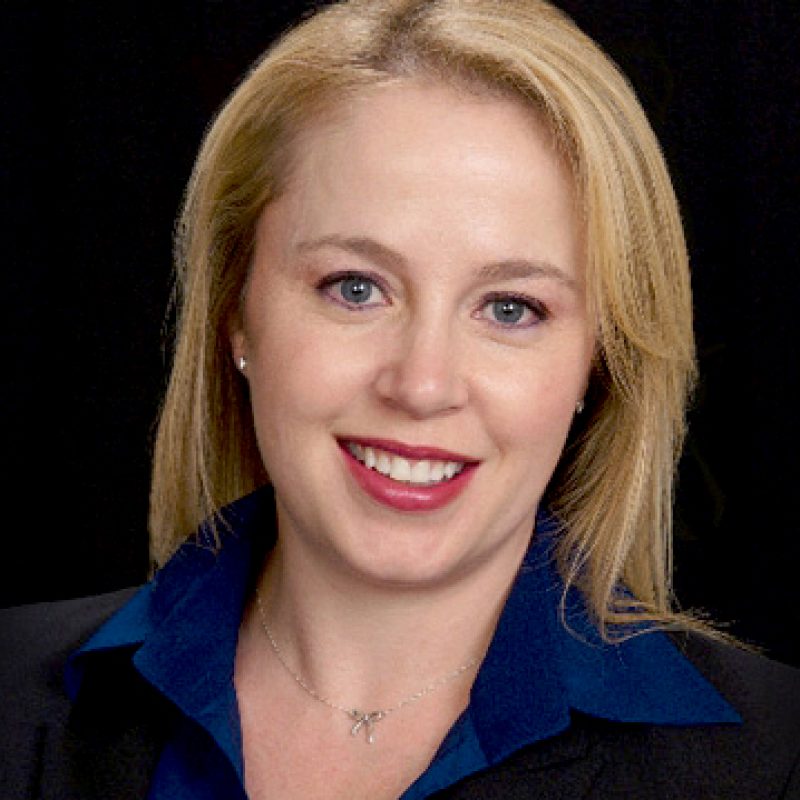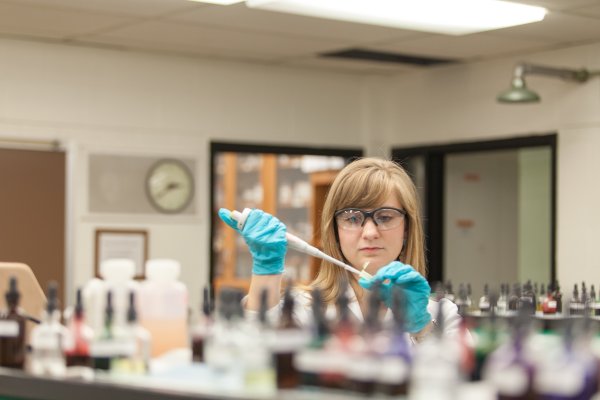Surgical Artist

Quenby Erickson, D.O.
Class of 1994
Majors: Biology and Chemistry
Chicago
Every morning, Quenby Erickson wakes up and says to herself, “Wow. I’m a dermatologist. This is awesome.” Then she goes into work at the practice she opened in January 2014, on Chicago’s Magnificent Mile. It isn’t the future she envisioned while at Valpo, but she says the University has supported her throughout the journey.
For decades, Quenby has been passionate about curing cancer. Upon graduation, she went into a Ph.D. program, where she hoped to contribute to finding a cure. Instead, she found that bench research didn’t fit well with her social personality and desire to tangibly help people. So, after talking with her mentors at Valpo, she left graduate school to begin medical school instead.
“I had an inkling that I might be interested in dermatology, but I had a hard time reconciling that with curing cancer because I thought dermatology was all about looks,” Quenby recalls. “In my junior year of medical school, I did my dermatology rotation and saw the work included surgeries to remove cancers. Once I discovered that, I didn’t have to look any further for what I wanted to do.”
By specializing in Mohs surgery, which removes common skin cancers with high success rates, Quenby is able to preserve patients’ health. She also works hard to preserve their image, restoring their appearance after the surgery.
“I am passionate about all of dermatology, but I really love the artistic side,” she says. “After I have removed the cancerous cells, people have a defect on their ear or eyelid or nose. With the reconstructive surgery, I am putting them back together, making it look like nothing happened. It’s a special thing to be able to do for somebody.”
Quenby has shared her experiences with students as a lecturer in Valpo’s pre-med colloquium. She says that is one way she can give back to the University that helped her find the career she loves.
“Valpo was a fabulous place for me to get my education, because I developed personal relationships with mentors who could guide me toward next steps,” she says. “They’re proud of me now, even this long after graduation. They are happy for me when I have successes.”
